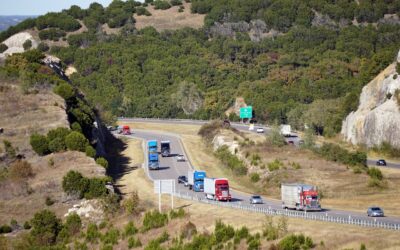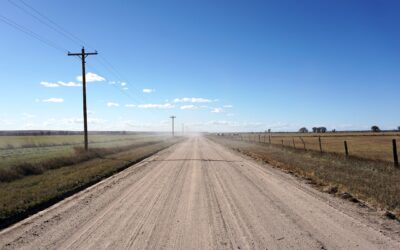Kansas is known for many great things, from cuisine to culture to cinematic appearances; it’s hard to imagine the state without thinking of farmland. As the top producer of wheat in the country, it’s no surprise to see farm equipment and other large machinery on the Kansas roadways. Heavy haul transport requires careful preparation and planning before pulling off onto traffic. Between the right equipment and securement to the right permit and signage, there are several tips to know about safe heavy hauling. Here are five to help you get started if you’re new to sending heavy equipment on a truck.
Know the Weight and Size Limits
The first rule of heavy hauling is knowing the weight and size of your load, as well as the limits for oversize hauling. Neighbouring states with similar terrain may have similar restrictions, but it’s always best to check the restrictions for every region your load must travel through.
Even within a state, the rules can change. For example, the Kansas Turnpike has its own set of rules and guidelines. Anything exceeding the limitations may require an inspection and be restricted from travelling in the dark. For full guidelines on heavy hauling restrictions on the Turnpike, you can find the details on the Kansas Turnpike Authority website.
Obtain Any Necessary Permits
Loads that measure beyond the restrictions will require a permit to travel within the state of Kansas. Along with a permit, drivers will be required to display certain signage on the front and back of their truck and trailer, along with flags and lights, depending on the roadway and time of day. Certain oversize loads may also require escort vehicles to travel with them. These are just some of the reasons why careful advanced planning is so important with heavy hauls.
All oversize permits are obtained through the Kansas Department of Transportation (KDOT). Failing to obtain your permit could result in heavy fines and is never worth the safety risk. Harsher rules apply to the busy Kansas Turnpike route, and drivers will need to be familiar with the restrictions for this route as well as within the wider state.
Plan Your Route Carefully
When you know the dimensions of what you’re hauling and acquire the proper permits, you can plan your route carefully. Certain roadways will have restrictions about the maximum weight they can support—think bridge limitations, overpass height limits, and narrow secondary roadways.
Knowing which route will accommodate your load gives you a plan in advance and reduces stress during the trip. You might also want to plan a secondary route as a backup, so you know where you can safely travel in the event of the unexpected.
Check the Weather During
Checking the weather before you travel is good practice, no matter what you’re hauling. It’s especially important when you’re setting off with a heavy load or an oversized load. Weather conditions can shift quickly, especially on open landscapes. Certain routes will restrict the movement of oversize loads due to weather conditions. You’ll want to know as early as possible if you need to change your travel plans before you start driving.
Check and Maintain Your Equipment
Professional heavy haulers will maintain and inspect their equipment on a regular basis, meaning they should show up to pick up your equipment with full tires, a clean trailer, and no known issues with their trucks. They should have inspected their headlights, tail lights, brake lights, braking system, and any safety accessories on the truck and trailer before loading.
Once the equipment is loaded safely onto the trailer, the driver should also be checking that the tie downs are secure, that the machine is in position for the trip so it won’t shift in transit, and that the machine itself has the windows covered and the door locked. Most drivers will also pull forward slowly as a test to make sure the load is in place before taking off at regular speeds.
Heavy Equipment Transport in Kansas
Following these tips will help you and your driver be better prepared to move your equipment, no matter what distance. If you’re sending your tractor to auction, have purchased a harvester from another seller, or just need to move your equipment across the state, these tips will help you comply with regulations and make the trip safer.
When you need a reliable heavy hauler in Kansas, try the Trusted Dispatch loadboard. Our network of drivers is ready to take heavy hauls across North America. Start today with your free, instant quote.





